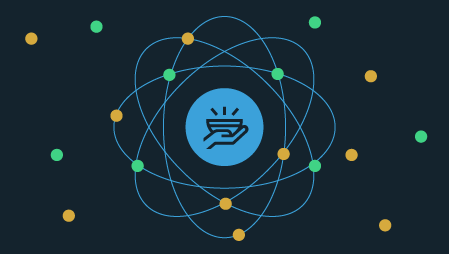Companies from various industries recognize the positive impact of the Internet of Things adoption and are willing to introduce innovations into their key processes to drive performance and scalability. In this article, we will discuss the five IoT trends in manufacturing that will dominate the industry this year.
According to the latest survey conducted by Microsoft, 85 percent of enterprises aim to adopt the IoT in the future, while 75 percent of them already have related projects in plans. Besides that, the estimated worth of the IoT market is expected to reach $110.6 billion in the next five years. Let’s find out how the IoT is used in the manufacturing industry and discuss the future of IoT in manufacturing.
Five IoT Trends in Manufacturing Industry
Manufacturing companies increasingly understand the importance of digital transformation dictated by the constantly changing world of technology. In their drive to optimize production, manufacturing companies implement the Internet of Things by integrating a network of sensors and devices with industrial applications and equipment, to gather critical information on machinery behavior and facilitate the exchange and processing of this data. Let’s see what IoT trends are expected to dominate the manufacturing industry this year.
SaaS Adoption
Software-as-a-Service systems provide fast access to industrial devices and their data anytime and anywhere you need it. With the help of SaaS, manufacturers can benefit from flexible, scalable, and cost-effective solutions that are easier to implement and maintain than on-premise software.
Enhanced Use of Edge Computing
Cloud computing technology has numerous benefits but may be losing to edge computing when it comes to the IoT. With the increasing number of connected devices in manufacturing and data they generate, edge computing is expected to take over the industry soon. The IoT connects your devices with the existing SaaS systems through edge technology to guarantee faster response time and make data exchange less reliant on connectivity. This is especially useful for remote manufacturing sites. At the same time, cloud and edge technologies still can coexist and empower each other to deliver more insightful data and analytics.
Like many other digital solutions, the IoT is vulnerable to malware and hacker attacks. Manufacturing companies planning to implement the IoT are increasingly considering adding an extra level of security to prevent any data leaks. The more devices are connected within an organization, the stronger its security system should be.
Big Data and Artificial Intelligence
Predictive analytics and Big Data help detect complex patterns in machine behavior, monitor equipment health and alert supervisors to the need of servicing the equipment. This can help lower maintenance costs, decrease asset downtime and ensure workplace safety.
Benefits of the IoT in Manufacturing
The need for digital transformation in any industry is supported by the results and improvements it delivers. The Industrial IoT, in particular, improves internal processes, enables automation, introduces data-driven decision making and other innovations to increase visibility and performance across all operations in all departments. Below are only a few benefits the IoT brings.
Strong Interconnectivity
The IoT is about connecting as many elements of the production process as possible to work together as a whole. Strong connections between the systems, machines, and employees across your company allow creating a scalable intelligent business environment where all processes are visible and can be adjusted in accordance with the changing needs.
Faster Time to Market
Technologies enable optimized and more efficient manufacturing processes through shortening idle periods, reducing human involvement and automating maintenance, which allows your products to enter the market faster than before.
Cost Optimization
The IoT helps to keep control of energy consumption, inventory, maintenance, automation, and other processes within the manufacturing organization. As a result, companies can save money on equipment servicing, operational costs, energy use, and create new revenue sources.
Downtime and Idle Time Optimization
Thanks to real-time machinery health tracking and predictive analysis, companies can significantly reduce the number of equipment failures, reduce downtime needed for repairs and servicing, and decrease maintenance expenditures. IoT sensors also help analyze the real time needed for assembling a product and give ideas on how to speed up and optimize assembly.
Safer Work Environment
Manufacturing is known as one of the most dangerous and risky industries. Every time a job involves heavy machinery, employees are always under the risk of getting injured. Smart solutions delivered with the IoT allow creating a safer working environment. For instance, warning systems can inform staff about the emergency, or machines get signals to stop operations if a worker enters dangerous areas and gets too close to the equipment.
How to Implement the IoT in Manufacturing
The best way to properly adopt the IoT is to find a reliable partner who will carefully evaluate your manufacturing process, help articulate challenges and come up with a solution to address them. Get in touch with the specialists.




